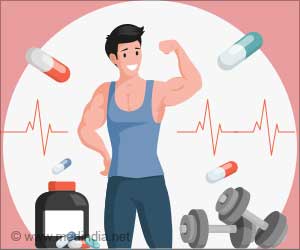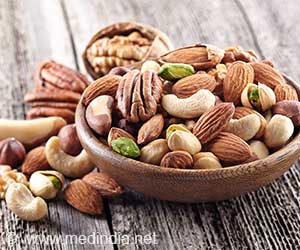Betaine replicates key exercise-driven anti-aging effects by inhibiting inflammatory pathways and protecting multiple organs.
- Exercise boosts betaine, which inhibits TBK1 to curb inflammation
- Betaine supplementation improved muscle strength and reduced scarring in aged mice
- Multi-omics profiling mapped how long-term training reshapes body-wide health
Systematic profiling reveals betaine as an exercise mimetic for geroprotection
Go to source). In a recent study published in Cell, repeated 5-kilometer daily runs for 25 days in 13 healthy men led to a measurable increase in circulating betaine, a compound now shown to reduce inflammation, suppress cellular aging, and improve organ function. In aging mice, betaine supplementation improved muscle strength, reduced tissue fibrosis, and alleviated depression-like behaviors.
TOP INSIGHT
Did You Know?
A kidney-made molecule called #betaine can mirror exercise’s geroprotective power! #exercisemimetic #healthyaging #medindia
Why Betaine Matters
Exercise has long been linked with better metabolic, cardiovascular, and neurological health. But the precise molecular mechanisms by which physical activity confers its benefits have remained murky until now.Researchers from Capital Medical University and the Chinese Academy of Sciences conducted a comprehensive multi-omics study to profile the biological impact of exercise. Their goal? To decode how physical exertion transforms human physiology, and whether its effects can be replicated through a single compound.
How the Study Was Conducted
Thirteen healthy young men were put through two distinct exercise phases:- Acute Phase: A one-time 5-km run
- Training Phase: Daily 5-km runs for 25 consecutive days
Findings:
- Acute exercise triggered inflammatory markers, including a spike in interleukin-6.
- Long-term exercise showed reduced inflammation, better metabolic markers, and a rise in antioxidant enzymes.
- Most significantly, it increased circulating betaine, a molecule previously linked with liver health.
What Betaine Does in the Body
Betaine’s effectiveness lies in its ability to inhibit TBK1 (TANK-binding kinase 1) —a protein known to accelerate aging and inflammation. When TBK1 is suppressed:- Cellular senescence slows down
- Inflammatory pathways are dampened
- Tissue regeneration is enhanced
- Increased muscle strength
- Lowered tissue damage
- Reduced signs of organ damage
- Enhanced kidney function
- Improved mood and emotional behavior
The Future of Aging
The idea of an “exercise pill” has long fascinated the medical and fitness communities. While betaine isn’t that pill yet, these results bring us significantly closer. For individuals with mobility limitations, chronic illness, or age-related frailty, such an intervention could offer a lifeline to health benefits they might otherwise miss.However, researchers emphasize that this study involved a small group of young men. The results, while promising, need confirmation in larger and more diverse populations, especially older adults. Safety, dosage, and long-term effects of betaine supplementation remain areas for future research.
This breakthrough doesn’t mean we can toss out our running shoes just yet, but it does offer a promising path forward in the science of longevity. The study showcases the multi-organ, anti-aging power of sustained exercise, and identifies betaine as a key player behind those benefits.
As the search continues for safe, science-backed ways to extend health span, betaine may become a valuable tool; especially for those unable to engage in consistent physical activity.
Taking care of your body through movement, nutrition, and rest still remains irreplaceable. But, science may soon offer a way to boost those efforts, molecule by molecule.
Reference:
- Systematic profiling reveals betaine as an exercise mimetic for geroprotection - (https://www.cell.com/cell/abstract/S0092-8674(25)00635-X?)
Source-Medindia
 MEDINDIA
MEDINDIA




 Email
Email










